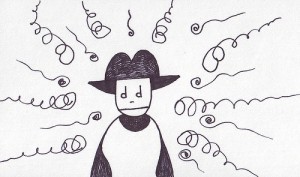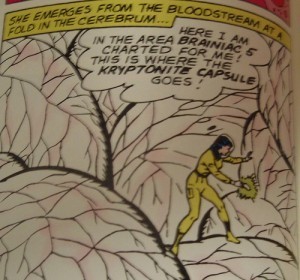Melanie Edmonds's Blog, page 33
March 26, 2013
Independent vs Traditional Publishing: Royalty and Pricing

It’s all about the money.
(Picture by Truthout.org)
(Part of the indie vs trad series.)
Here’s the bit that everyone is interested in: the bottom line. What you get to take home from your book sales.
This is a two-fold subject: what price is set on your book, and what percentage of that price comes to you as the author. These together feed into the profit you are likely to make, and there are some trends that are worth keeping in mind.
Pricing
Price matters, for many reasons. Remember, as an author, what you get is a percentage of the book’s price, not a fixed return. The price tag can also influence reader expectations and perception of the story.
As with so many of these posts, control rests with the self-published author. Whether you’re going electronic or paper, you get the final say about what your book’s price is. You can offset your costs or not; it’s up to you. Print-on-demand (POD) publishers will usually restrict you to the cost as a bare minimum, and some stores won’t allow you to list books as free (Amazon, I’m looking at you), but for the most part, you’re free to manipulate it however you wish.
When going traditional, however, you have no input. Your book price is determined entirely by the publisher (and sometimes the store). You have no control over promotions or offers. When a paper book isn’t selling and it is returned by the bookstores, publishers usually mass-reduce the price to get rid of the stock.
On the other hand, traditional publishers should know where to pitch a book’s price in the market. They are, after all, in the business of making money from sales. So it seems like they know what they’re doing. Doesn’t it?
In the ebook realm, traditional publishing has come under fire because they tend to price their ebooks over the odds (and in some cases, above the paper book price). They consistently price above the ‘norm’ for ebooks, and Smashwords did an interesting analysis of the effect that this has on sales (and the knock-on to author profits). The analysis shows that lower ebook prices not only net increased sales, but significantly larger returns for the author.
The real questions: do you trust the traditional publishers to do what’s best for you and your book? Do you want to maintain a hand on the reins when it comes to price? Do you think you can manage your book well enough to do what’s best for it?
Royalties
Okay, so you have an idea about how much you care about controlling your book’s price. But what does that really mean when it comes to the money in your pocket?
With traditional publishing, you’re looking at 10-15% of the book price for paper and ebooks. Out of this percentage, you have to pay your agent, if you have one (usually 10-15% of whatever you get). The publisher’s portion of the book price goes to cover the costs associated with your book (check out the Services post for more on this), the publisher’s own costs and commission, distribution, and retailer commissions.
With self-publishing, royalties are usually 50-80% of the book price. The rest goes to distributors and retailers, who work on commission, and a publisher to cover the printing costs if you’re doing paper books. The norm is 60-70% for ebooks, though Amazon has a 35% royalty level (which they’re pushing authors towards, but that’s a rant for another post), and the highest I’ve seen is 85%. Self-publishing paper books is usually lower than this (I don’t have exact percentages, but the printing costs are a big chunk of the price and the profit is whatever you price above that cost).
As with all things in publishing, it’s not always as simple as it looks. When it comes to paper books, a traditional publisher’s distribution network and marketplace presence is likely to net you a lot more sales than self-publishing. I don’t have figures to compare average take-home rates – I’m not convinced they exist, because I don’t know what a ‘typical book’ would look like for realistic comparison – but chances are, traditional publishing is going to win out on the net profit here (for authors, that is).
For ebooks, it’s a different story. The distribution available to self-publishing authors means that the reach can, potentially, rival traditional publishers. Again, check out the post on the Smashwords blog about pricing and returns, and the effect on profitability. The disparity in the royalty rates means that self-publishing authors get a lot more than those signed with traditional publishers at the end of the day.
The real question: which royalty rate is going to get you the best returns?
Personally, I lean towards the self-publishing side in the ebook realm. Traditional publishing is still floundering in ebook stores and they have a lot of lessons to learn from before they’ll be as effective as they could be there. This is the area where an indie author can shine; and they do.
Next up: Contracts
March 24, 2013
Just: a Bugbear

He may be cute, but that doesn’t mean you shouldn’t stamp him out.
(Based on the Kingdom of Loathing bugbears)
Every now and then, I notice a habit in my writing that I don’t like and I try to stamp it out. Because I write a web serial (on the fly), I’m in a constant writing and editing cycle. I’m always looking at my work critically. Sometimes this leads to blindness when it comes to habits. Other times, I notice patterns forming, good and bad.
I always seek to improve my writing, so I make an effort to challenge my habits. I don’t want to fall into a rut and I like to try new things. Keep my writing fresh; that sort of thing.
In particular, I aim to crush bad habits. I have a mental list of things that I keep an eye out for when I’m re-reading a piece. Like extraneous commas, because I know I have a tendency to put them in when I pause for thought when I’m writing and they don’t always suit the flow of reading. The other thing I keep an eye out for is words that I tend to overuse.
Lately, ‘just’ seems to be the word that’s grabbing my attention a lot. It used to be ‘that’ – often, I’ve found ‘that’ can be removed from a sentence, because it’s more of a vocal habit than a word actually required for the sentence. Apparently, I’ve moved on to putting ‘just’ into random places.
It’s just a little weird. And usually it’s just unnecessary. It adds little to a sentence and the meaning is often clearer without it. Again, it feels like a vocal habit sneaking into my written work. (This could be a result of writing so much in first person, which tends to feel more colloquial.) Whether it’s adding a subtle emphasis or moderating a descriptor, I’m increasingly deciding that I just don’t like it.
Sometimes it’s worth using. Sometimes it means just what you want to say. But I try to challenge every one of them so they earn their place in my work. If in doubt, get the knives out and cut.
So here you go, tiny word ‘just’: take this bugbear costume and go sit in the corner. Stay there until you behave. Or until something else crops up to take your place in the naughty corner.
So what’s the thing that you look out for most in your writing?
March 20, 2013
Rape and other violations
I don’t often post about non-writing-related stuff on this blog, but this particular subject is cropping up all over my awareness today, and I think I’ve got something to say.
For those who haven’t come across it yet, the Steubenville rape case in America just convicted two teenaged boys of raping a drunk, unconscious 16-year-old girl, and then posting a video of the act online. She wasn’t only raped (as if that wasn’t bad enough): she was carried from party to party, paraded around, humiliated, and (apparently) urinated on, all while still unconscious and in various stages of dress. In the days following the incident, the cyber trail included pictures, the video, and a lot of chatter around how hilarious it all was.
Hilarious. Really.
I think what bothers me most is not the act itself. Rape happens – it’s not good, it’s not right, and it should be stamped out with shotguns. But it’s like murder: we have to face up to the fact that it happens, it’s terrible, and we have to deal with it. In this case, how it was dealt with is what makes it worse than a single terrible incident to me.
I’m horrified that no-one stepped in. No-one apparently thought to check on an unconscious girl at a party. Even if no-one was fucking with her, that’s not a safe situation to be in, but she was obviously in trouble.
Clearly, her friends suck. Where the hell were they? Having been in situations where I’ve had to look after drunk friends at parties (and getting home from parties and all the rest, including fending off over-attentive men), I know how important it is to look after each other. It’s fine to have a good time; it’s not fine to abandon your friends and have a good time at their expense. Ever. I don’t care how old you are: underage or not, you know what’s right and wrong (if you don’t, there’s something seriously wrong). None of these kids was ignorant about what was going on. But all of those who saw it let it happen.
Don’t get me wrong – I know how hard it is to step in. People are afraid of getting involved and stepping into the firing line, for many reasons, personal safety being one. But you don’t have to get involved to call the cops. Or to call your parents. Or her parents. Or her big brother. Or ANYONE who might be able to step in and stop it for you, if you’re too scared to do it yourself. You have options, and doing nothing is the worst (except for joining in, of course).
Then there are the excuses. I don’t care what your excuses are – about her, about the boys, about the situation – it’s rape. Rape is wrong. It is that simple. And yet there’s a whole movement trying to excuse the boys who did this. Trying to justify what they did, or brush it under the carpet (because it’s fine for football players to behave this way, apparently – I wish I was kidding). Whining about how their lives have been destroyed because they’ve been sent to juvenile detention.
No. Those boys are not the victims. They knew exactly what they were doing and they chose to do it. The girl they raped did not have a choice. Now they are facing the consequences of their actions, as they should.
Those who exposed this crime and combated the attempts to cover it up by the boys’ football coach (and probably others in the community) have been attacked (verbally/over the internet) and threatened. The town of Steubenville is defensively trying to stave off accusations about how it handled the whole affair. The victim herself has apparently been threatened for ruining the boys’ lives (???) and careers (!!!).
This case has stirred up a lot of discussion about how the victims of rape are treated, how rape is viewed, and why so many victims fail to come forward. Rape victims are put on trial alongside their rapists – this is not news, but it’s not right, either. The ‘she deserved/was asking for it’ defense is a common one. No other crime puts its victims on trial this way. It’s disgusting, making excuses for weak and cruel men, and trying to justify inflicting pain and trauma on another person.
Let me put it in another light: if the assault was physical but not sexual, are the same tactics used? No. If you beat the crap out of someone who is not a willing participant in the fight, you are fully culpable for causing that damage. Even if the victim is a habitual fighter. Even if they mouth off. Even if they’ve fought you before. If they choose to say no, then you are completely at fault. But as soon as sex enters the picture, all of a sudden it’s all right to abuse another person. Their choice means nothing. Right? No, it’s not right.
But the fear of being put on trial is not the only reason for rape going unreported, and that surprises me. It saddens me beyond belief that so many rape victims decide not to come forward (more than half don’t, according to the stats). Looking through articles, posts, and comments around this case, I’ve read that victims also choose not to come forward because they’re afraid of what their family/loved ones will do (I don’t want daddy to go to jail for killing someone), it has been a long time so there’s no point, it was an isolated incident so there’s no point…
If rape is not reported, it’s not addressed. If it’s not addressed, it will just keep happening. Should we not prosecute someone for murder because hey, they can’t murder that person again, so what’s the point? Yes, we should. They broke the law, they violated someone’s rights, they did something awful, they might do it to someone else, so the bastard deserves to be put on trial and punished/rehabilitated/reprimanded appropriately. And if we don’t talk about it, if we act like it never happened, how will it ever stop? This kind of thing isn’t going to magically fix itself. How many other people have to be hurt and damaged before someone does something to stop it?
I understand that it’s traumatic and takes incredible bravery to report a crime like this. But that’s not a reason to just let things like this happen. ‘There’s no point’ is not an excuse to stay quiet, because there is always a point.
One of the worst things we can do about this kind of thing is stop talking about it. That’s part of why I’ve decided to weigh in on this, because without dragging this out into the open, it’s never going to change. Silence is dangerous.
In my reading today, I have seen one post/article about what might have caused this to happen in the first place. It was by Henry Rollins, who I’m aware of as a musician but have never come across outside of that field before. On reading his post, I applaud his courage in speaking his mind about this. He makes points about how it’s important to understand why all those kids thought what happened was fine. It’s cultural, it’s educational, it’s social, and we need to do something about that. I think he’s completely right.
Because this isn’t an isolated incident. Rape is a big problem, and punishing the perpetrators is only a reactive response. Yes, these kids should be punished, but if we don’t look at what took them to that place, how will we prevent it from happening again? What about the kids who haven’t got to that place yet? What about the men who have grown up with a similar mentality, who haven’t raped yet? How do we prevent people from hurting and getting hurt?
It’s not an easy subject, nor a simple solution. We have to look at the psychology of rape – not just the rapists, but everyone who impacts on the situation. Sexual politics in society; the way rape is handled in the media; the way law enforcement and the legal system treats these cases and victims; the way sex education is taught in schools: every single one of these pieces impacts on our idea of what rape is and how we think about it. Some of these things put excuses and loopholes into the mental landscape, and there are many holes to plug. If we want this kind of thing to stop, we have to take a long, hard look at ourselves, our values, and the things we are pushing into our society. Then we have to do something about it.
This is where writing comes into it for me. I’m not talking about this blog, though I hope to make a difference in some – any – small way. When it comes to art, we can have a lot to say about situations like this. We can use our creations to shine a light into the dark places of our society, onto the awful subjects and the uncomfortable places. We can hold a mirror up and show the world the face it tries to keep locked in the attic like Dorian Grey. We can explore the long-term implications of the road we’re on. We can show the alternatives to the place we’re in now, and offer hope.
I’m not saying we have to do this. As writers and artists, it’s completely up to us what we believe is important to show in our work. But it’s important to know that we can.
It’s also important to know that subjects like this should be treated responsibly. Fiction (and any type of art, but particularly the easily-consumed pieces like books and TV) impacts on social thinking. It adds to the social values of the cultures that read it and we shouldn’t pretend that our work isn’t a part of the big picture.
So yes, stories that use rape irresponsibly make me angry. It’s not something to throw in randomly, with no real consequences or fallout because you want short-term angst. It’s not a fun trauma (is there such a thing?). It’s not something to make light of. Matters like this should not be trivialised. If you don’t want to deal with it, don’t put it in your story. If you use it, do it properly and with respect.
That’s my rant for the day. Responsibility, respect, and awareness of the things that are broken in the world we live in: those are the things we should take away from this mess. And then work on them, in whatever way we can.
March 18, 2013
The Asylum has a home!

This way lies madness. Or salvation. One of those.
(Picture by ark4n)
Plans for the Writers’ Asylum are coming together. The challenges are written, the day is scripted. And now, we have a venue.
From 10:30am until 5pm on Saturday 20th April, we’ll be set up in the back area of the Coffee Club at Park Road, Milton.
The challenges will also be going up on this blog through the day, so you can join in even if you can’t make it to the venue. You can also feel free to post your writing in the comments on the challenges, if you want to show off what you’ve done!
So excited about this. Can’t wait until next month! Hope you will all join me.
March 17, 2013
Crowdfunding Starwalker

Everyone will want to support Starwalker! Right?
When I set out my goals for this year, I put down that I wanted to crowdfund the release of the Starwalker ebooks. It was one of those ‘if I can figure out how to make it work’ kind of goals.
Why crowdfunding? Because I can’t afford to do everything I need to do to make Starwalker into ebooks on my own. For example, covers are the biggest cost for me. I was lucky enough to get free covers for The Apocalypse Blog, but I can’t see that happening again, Also, I have a pretty clear idea about what I want for Starwalker‘s covers.
This is going to be a big project. It’s not just about the main Starwalker series: I want to release the short stories I’ve been doing on the crew as well, and collected editions of the main trilogy and the shorts. I counted them up: 18 ebooks. That’s 18 covers, 18 lots of editing, 18 of everything.
I want to do Starwalker justice and make a good, professional set of ebooks. I’ve read around a lot of advice about how to make a successful ebook, and they all say the same things:
Write a good story
Have a professional-looking cover
Have it professionally edited and formatted.
I’m hoping that I can cover the first one all by myself, but the rest takes money. At this particular point in my life, I just don’t have that kind of capital to spend up-front.
So, the crowdfunding idea has been niggling at the back of my brain, like a seed that is determined to make roots and then sprout a tree out of the top of my head. For the past month or so, I’ve been doing research to see if I can figure out how to make it work.
Ultimately, it doesn’t seem to be too hard. I’ve looked around for advice from other writers and at examples of other writing/publishing campaigns (particularly, the successful ones!). I know what would make me inclined to give a project money, too.
The key things that a project seems to need are:
Organisation. A well-organised campaign gives supporters faith that the project will be well-organised and successful.
Clear goals. It’s shocking how many campaigns don’t make this information easy to find.
Clear rewards, preferably with some creativity or something that can’t be obtained any other way.
What the money will be used for. This information can be hard to find in many campaigns, and considering how much money some artists ask for, as a potential supporter, I’d really like to know what they plan to do with it all.
A video. These drastically increase the likelihood of being successfully funded.
All seems pretty simple and straightforward. I’m naturally a pretty organised person, especially with something like this. I take pledges and goals pretty seriously, so I know how to make a set of promises that I am confident I can achieve. As a technical writer, I know how to lay information out in a user-friendly way.
The video is the main sticking point. Like graphics, it’s just not an area that I have any skills in. Luckily, I know at least one person who knows how to work this particular kind of magic. It’s going to take me some money to get it put together (and I’m going to have to film myself, ugh), but I think it’s achievable.
Work is underway. It’s all coming together. I’m excited to get the campaign kicked off. Soon, I’ll be begging you all for the spare change in your couch, to make this thing happen. Watch this space!
March 6, 2013
That reliable spark

Look how shiny it is!
(Photo by Gnal)
After babbling about how my health was making my writing efforts suck lately, my energy crashed and I wound up heading home early from work last week, on my usual Starwalker posting day. There was no way that I was going to finish the post in any competent way, so I shelved it for the night.
After some rest, I was feeling better the next morning, as well as pretty determined to Get Stuff Done. The Starwalker post was finished up on the way to work, including sorting out a couple of gnarly issues that had been bothering me (and were also why I didn’t want to put the post up without working on it more). In the process, a couple of ideas about the next post appeared, and the whole next week of writing opened up for me.
This is part of why I push myself to be creative, even when I’m not really feeling it. Sometimes the piece will turn out crap and I’ll have to leave it until I’m feeling more on top of these things, at which point I can fix it up. Sometimes it’ll surprise me and I’ll wind up writing something I hadn’t intended but love all the same.
And doing something creative is the best thing to spark other creative stuff. My mind will roam randomly over possibilities and repercussions, and suddenly that grey area that was next week’s post suddenly has a shape and some shiny bits. Sometimes the whole next sequence will fall into place.
That’s what I love about writing the serial the way I do. I’ve been struggling with conceptualising this last section for a while, and a lot of it is still pretty murky, but the fog is lifting. Little by little, I can feel it taking shape. All those disparate ideas I’ve held onto for ages are coming into focus and sidling into place. It’s the best fun. It’s also a great relief; I can cling to the hope that I’m going to do my story and my readers justice.
After much toil (and fighting with work and getting home), last night’s Starwalker post went up on time. Here’s hoping that it works the way I planned it to. Time to start thinking about next week’s!
February 24, 2013
Frazzled

Brain kerblooey.
Picture by karindalziel
I was going to write this post at the end of last week, but wound up too frazzled to. Plus, I had a fun announcement that I wanted to make, and let’s face it, we’d all much rather read something like that, right?
But I want this blog to be about my writing journey, and a part of that is talking about the stuff that makes writing hard.
Right now, my health is rearing its ugly head again and playing havoc with my ability to write. My energy is fraying and I’m struggling to get writing done on my usual commute to and from work. Sometimes I just need to nap; other times my brain just can’t cope with trying to be creative or even reading text. I often write posts for this blog on the train (once my weekly Starwalker is done), and that’s a struggle sometimes, too.
Part of it is most likely caused by the amount of things I have going on right now. There’s the Writer’s Asylum to organise (taking more steps in this all the time!), and the Writer’s Retreat is ticking along in the background too (which I have to chase up soon). I’m currently scoping out costs so I can put together a crowdfunding campaign to get Starwalker published over the next year or so.
Then there’s the non-CFS health stuff that is getting in the way. I’m in (albeit mild) pain and discomfort at random times most days, and that is wearing me down, too. I’ve got some exploratory tests coming up to track down the cause (and investigate a dodgy diagnosis I had about 8 years ago). They’re going to put me out for the tests, which I’m not looking forward to (I have an unhappy relationship with anaesthetics and have no idea how I’ll react to being knocked out completely), and that plays on my mind from time to time.
I’ll be very glad once the next couple of weeks are over, because the tests will be done and I’ll hopefully have some information to move forward with.
In all of that, I’m entering the final chapter of Starwalker’s initial story. I have the pieces I want to play with in mind, but I’m still juggling the logistics of the chapter and I’m not entirely sure how it’s all going to pan out. I want to do the story justice. I want to upset the apple-cart. I want my readers to hold on for the ride and be grinning (and maybe crying?) at the end. I kind of want to write the entire end before I start posting it - to make sure I get it right - but that’s not how my web serial works. Nope, I’m going to just dive in and swim along, and see where it takes me. No retcons; I hate retcons.
I’ve had chronic conditions for a long time. I’m used to pushing through and refusing to let it stop me living my life. It’s getting harder to keep doing that, but I’m not going to stop yet. If I put my life on hold for this, when would I get it back, y’know? Damned if I’ll let it stop me being me.
There’s a lot going on in my head right now. I’m trying to keep up but it’s taking its toll. Wish me luck, and hopefully I’ll catch the upswing again soon.
February 21, 2013
Starwalker spreading through the internets

This spider wove the internet! No, really! And I’m its queen.
(Photo by Kewima, sculpture outside Canadian Art Musuem, Ottawa.)
It’s no secret that I adore my readers. It is in part because of how much time they spend on my work, and today I’m delighted to share some of their effort with you.
Thanks to one of my lovely readers, Francisco, Starwalker has joined the illustrious maze of information on TV Tropes. Starwalker has its own page and a bunch of links to the tropes that it features (and lots of spoilers, but it’s okay, they’re hidden behind spoiler filters).
It’s so exciting! It’s like seeing my story on someone’s bookshelf, like it is becoming a legitimate piece of (webby) literature. It feels like a step towards Making It.
The fun doesn’t stop there. Starwalker also has its own wiki! The wonderful Lianamir set this up and seeded it with information. (I meant to share this aaaaaages ago when Lianamir first shared it with me – and I thought I had – but apparently it slipped past my mental radar. Sorry, Lianamir! I’m late but I get there eventually.)
Everyone now needs to go check these things out and update them with all the fun info and links that you think are relevant. Enjoy!
Big thanks to Francisco and Lianamir.
I shall now return to my corner and squee quietly to myself, while petting the internet. It loves me too.
February 18, 2013
Challenging my brain

Look! She’s putting Superman shit in my brain!
From Adventure Comics #350, November 1966
For the past week, I’ve been hip-deep in the writing challenge morass. After realising how little time I have until the Writer’s Asylum will be upon us, pondering ideas for challenges has been sucking up my spare time. (Don’t worry: I have this week’s Starwalker post all sorted out.)
It has been an interesting process. I started off just making notes, trying to build a list of challenges that touches a lot of different subjects, styles, and themes. I need 6 challenges in total for the event: this list is both woefully short in terms of scope, and long in terms of coming up with complete challenges.
I wound up with a list of 9 or 10 themes I could potentially do. Some of them automatically shaped themselves into scenarios in my head, which made the next phase a bit easier.
The next phase was to write the challenges out in full, which has been a process all in itself. The challenges have to be general enough that the writers can take the prompts where their creative muse lead them, but specific enough to push them into an area they wouldn’t normally write in. There need to be options with guidance. Freedom within constraints. Enough information for writers to get hold of and take inspiration from, but not so much that they’re strangled by it or thrown out of the idea.
It has been fun! I’ve made up little exercises for my Creative Writing Group before but nothing on this scale. It has been a challenge in itself, stretching me into a new area. I’m writing them up in the form that I’ll probably use when I post them up on this blog (the challenges will be mirrored online, for those who can’t make it to the event in person). I’ll be reading them out at the event, which will be a scripted form of public speaking; also something I haven’t really done before (I’m an off-the-cuff kind of speaker most of the time, running off brief notes).
It’s a learning experience for me all over. I’m not sure yet whether I’ll be able to take part in the challenges (it’s cheating because I already know what they are, and I suspect I’ll be busy facilitating on the day, both in person and online). Even so, I might have a go at them before the day, just to see what happens.
I have one left to write (the hardest one, of course) and then I’ll be ready. The proof will be in the testing, though. I have no idea if these are going to go the way I think they will and I can’t wait to share them with everyone anyway.
One left. Let’s see if I can knock it over tonight. Then all that’s left is logistics! Yay!
February 16, 2013
Independent vs Traditional Publishing: Services
(Part of the indie vs trad series.)
There are a lot of logistics and collateral to be sorted out before a book can be published. This is what I’m referring to as ‘services’: the items required for a book to get published. These usually require a time and money investment.
Here’s the breakdown of who is responsible for what:
Publishing Method
Author Reponsible
Publisher Responsible
Traditional
Editing reworks
Editing
Proof approvals
Cover design
Artwork
Marketing collateral (usually)
Formatting/print-setting
Publishing/conversion to ebook formats
Independent
Editing
Publishing/conversion to ebook formats
Editing reworks
Proof approvals
Cover design
Artwork
Marketing collateral
Formatting/print-setting
(This is a generalisation; some contracts might have exceptions in the above.)

Ever feel like this is what you’re doing?
Photo by Images_of_Money
As you can see, for traditional publishing, an author should not be laying out any money in order for the book to be published. All you should be responsible for is writing a damned good book and helping the publisher hone it into the best book it can be. Some authors supplement their marketing collateral by having additional items made – like business cards or bookmarks – but this isn’t required.
When publishing independently, almost everything rests with you. You’re responsible for getting it done (and done well!), or not. You can find services you can pay to do these things for you or you can do it yourself for free; how much you spend is entirely your choice, though there are factors you should consider before making that decision. (For example, professional-level editing and cover design can have a big impact on sales.)
The effort and cost impacts are pretty obvious from the table above. The column on the right is entirely covered by the commission that the publisher takes from your sales revenue; your books are expected to pay for it in the long run.
The trade-offs I mentioned in earlier posts begin to come clear. Here is a list of tangible things that the publisher does for you. In some ways, you get what you pay for. (And you always pay in some way; nothing is for free.)
The real questions: can you shoulder the burden of all of those things? Would you prefer to have professionals handle it for you?
Next up: Royalties & Pricing




